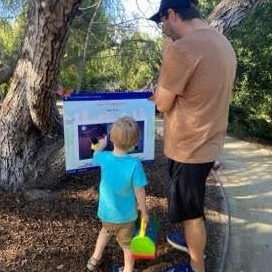Following a call for submissions in the 2020 Review of the World Heritage Management Plan by Heritage Victoria, the Royal Society of Victoria provided input on 27 July 2020. Sadly, this submission has not featured in the subsequent report, nor has it been acknowledged via other channels when queried, so we are reproducing it here for general consideration.
We are delighted to see a mix of the new and familiar from our late 2020 call for nominations for members of our governing Council. As none of the available positions were contested, our Returning Officer (Dr William Birch AM MRSV) has declared the these RSV members elected to these roles for a two year period, commencing from the next Annual General Meeting (set for May 2021). Our thanks to these members for their willingness to lead the Society and shape its future; we wish everyone every success during their tenure. Current Officers and Councillors of the Society will continue in their roles until they variously expire at the Annual General Meetings set for 2021 and 2022, including our incumbent President David Zerman, who will continue on the leadership team as our Immediate Past President following the May AGM.
Stewardship describes a deep relationship between people and place. In modern Australia, it is often proposed as the next step of transition for a culture that is emerging from a colonial, extractive relationship to the landscape. The transition to stewardship may require we reorganise around the unique characteristics of the country, undertake significant regeneration of damaged ecosystems and deprioritise constant economic growth in favour of an enduring sufficiency gathered from a prosperous and biologically diverse environment. Join members of all the Royal Societies in Australia for this unique series of three webinars, seeking a new model for the management of the Australian landscape so that our natural systems are conserved and regenerated for the benefit of future generations.
With electric vehicles predicted to represent 90% of all cars and light commercial vehicles on Australian roads by 2050, structural supercapacitors have the potential to revolutionise our transport by providing ‘mass-less’ energy storage, storing electrical energy in lightweight structural components of a vehicle’s body instead of in heavy, sole-purpose batteries. Dr Nisa Salim and her research team are working with multinational companies and Australian SMEs to demonstrate the exciting potential of these new supercapacitors, leveraging her collaborative relationships with a global academic and industrial network to take this cutting-edge research from the lab to the market place.
According to Dr Anita Hill, CSIRO’s Chief Research Scientist, “There are several impressive factors about Professor Fox. Her ability to communicate, inspire, and advocate for science is evident not only from the ecosystem that she has been able to create and fund but also from her presentations, several of which are available on YouTube as TEDx talks or interviews. She provides audiences of any background a vision of the future and one where Australia is designing and manufacturing the lightweight materials of future mobility (flying cars, hyperloops). She is a role model for STEM and for supporting high tech companies in Australia. She is recognised internationally, and uses her networks to Australia’s advantage.”






